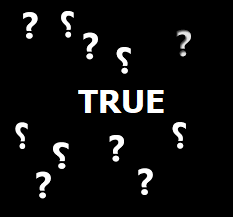
Arquivo para November 21st, 2018
Truth, beyond theory and practice
The concept of theory came into little credit if it moved away from practice, because idealism has no other possibility than to consider that it was the practice that determined the truth, or empiricism, because the ideal as knowledge, supreme knowledge of the idea, would have to have some method to discern when a “theory” is valid or not, and only experience could say.
idealism has no other possibility than to consider that it was the practice that determined the truth, or empiricism, because the ideal as knowledge, supreme knowledge of the idea, would have to have some method to discern when a “theory” is valid or not, and only experience could say.
There is a mastery and clarification about the multiplicity of things and, on the other hand, there is a knowledge of a concrete situation as if it were a more adequate orientation.
What Gadamer sought to demonstrate in his Truth and Method, among many other things with the question of historicity and method, was that when it comes to our technical capabilities, and they include our preconceptions and our interpretation of reality, the model of truth is not and should not be unique, and this not significant relativism, but ability to see the horizon posterior to the process interpretation of reality, ie, after the fusion of horizons
In the aspect of our technical capacities, it performs well its function, which is to bring relative security and comfort to some needs that exist and others that were created in the process of fusion of horizons.
When the field in question of our history and language is at stake, our relationship with art and religion, our awareness of death, our self-knowledge, and our choices and responsible actions in the face of our affect us as finite human beings, the model of truth fails.
What the Greeks determine as the spontaneous emergence of an “art” [τέχνε] proper to define the meaning of truth-bearing words [συνβολον], the art of interpreting [ερμηνευτικές τέχνες] has the name “hermeneutics” which represents not only our particular view of an object, but on the contrary our difficulty in determining precisely the meaning of a message,
While the Aufklärung of modernity believed that even the contents of history, which had become alien to us, could also be accessible to us through our rational activities, that is, a theoretical reflection, the idealism the fashion of the “old” Hegelians, the new ones have no reference to historicity, and Gadamer will reflect on Dilthey, who had the merit of abandoning psychologism, without leaving romantic historicism aside.
Thus speaking specifically of art, he argued that in order to properly understand his own works, more important than to grasp the unity between the content of the text and the tradition, is to accept the effort of understanding that only arises where there is the possibility of revising some misunderstanding, or some preconceptions, in other words, the interpretation is of the nature of understanding, since it is part of the possibility almost always of misunderstanding.
For contemporary hermeneutics, with some misunderstandings, Schleiermacher says that the task of understanding a text must also become an effort to understand another individuality, and then there are so many questions about the Other.
Ability to move beyond preconceptions and reinterpret the truth itself is part of the effort to overcome barriers where irrationality and hatred build insurmountable walls, Gadamer make this exemple: “Whoever abandons himself to his particularity is ungebildet (“unformed”) – e.g., if someone gives way to blind anger without measure or sense of proportion”.

